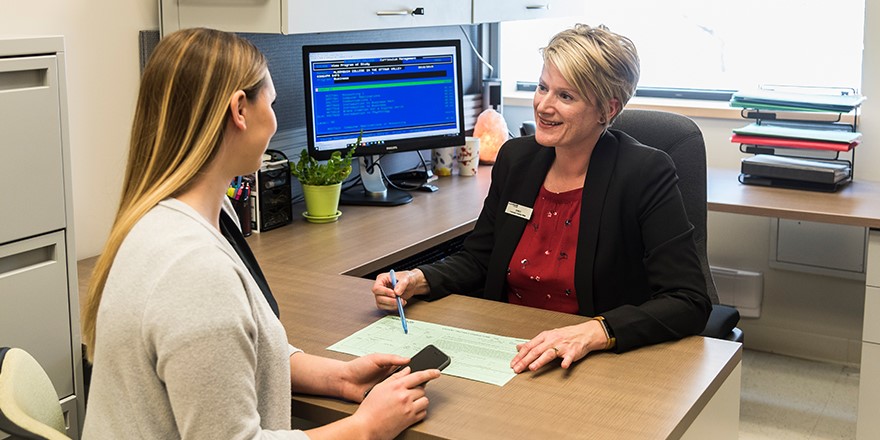
Ready to learn but worried about how to pay for it? There are several resources that students can take advantage of that can help make post-secondary education more affordable. Many financial aid programs include both loans and grants (grants are money that you do not have to pay back!) so you might not even have to take on as much debt as you thought. To get you started, here are a few tips:
Know where to look for financial aid
Ontario provides a mixture of both grants and loans through its Ontario Student Assistance Program (OSAP). Other provinces have similar programs — find a list of student aid offices in other provinces online. Some colleges and universities also offer their own financial aid websites — for example the Algonquin College Financial Aid page. Often, applying for one financial aid program can help you access other funding programs relevant to you. There are also online calculators available to figure out how much support you may be eligible to access.
Figure out if you're eligible
Different financial aid programs have different criteria for eligibility. For instance, OSAP requires that you reside in Ontario for the 12 months prior to starting your academic program, and take a minimum 60 percent course load (40 percent for students with a permanent disability). You can also connect with someone at your school's financial aid office to ask questions about factors such as your academic program's eligibility.
Determine how much you need
If you haven't already done so, create a budget to figure out how much money you actually need for your education. Confirm your academic program's tuition and any other fees required, and also estimate what you will need for rent, food, transportation, and other living expenses. Don't forget to include the cost of textbooks and other supplies, and consider a small cushion or emergency fund.
Find out and collect the necessary information
While you're visiting the relevant financial aid website, note what information is needed and collect it in order to prepare for applying. In Ontario, students need their social insurance number (SIN) which is the 9-digit number that you need in Canada to work or apply for government programs. You will also need proof of income for yourself and your parents or spouse, if applicable. Proof of income is generally provided through the Canada Revenue Agency (CRA), and if income cannot be verified, you may qualify for grants.
Apply early
Like many other aspects of post-secondary education, being prepared when it comes to financial aid can help you to avoid any last-minute stress. So, don't wait until August. "Apply early and upload your required documents quickly to avoid delays in receiving your funding when school begins," advises Krista Marsden, Manager, Financial Aid and Student Awards at Algonquin College. "Leaving things to the last month before school starts can result in your funding being delayed and you not having access to those funds when school begins."
See what other funding you may be eligible for
Besides loans and grants, you may also be available for awards, scholarships and bursaries through your academic program or your institution at large. Most colleges and universities include links to these resources through their financial aid website, so make sure you check and see what you may be eligible for—and don't forget to note any deadlines!
Visit the Algonquin College Financial Aid Page
